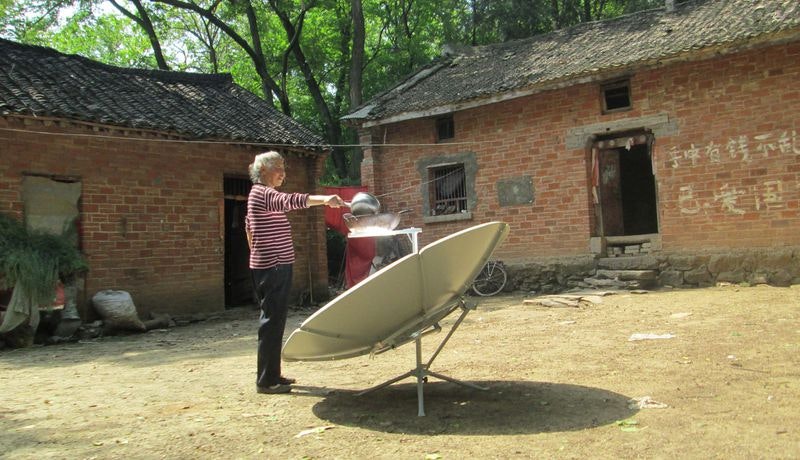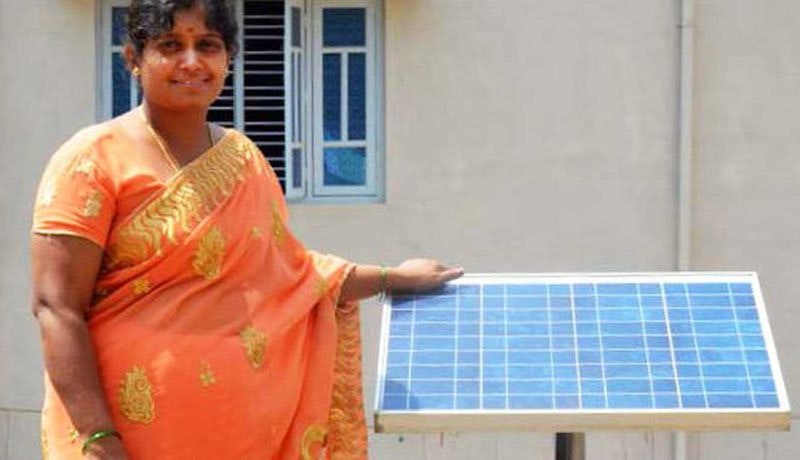Greenbuild Blog
How We Offset Carbon from Greenbuild 2023
November 1, 2023
By Nick Vener

Greenbuild’s mission (aside from creating healthier buildings) is to ensure that our world benefits from our event while minimizing the environmental impact.
When you attend Greenbuild, rest assured that we are working hard to offer a uniquely positive impact event. With that said, we are still constantly learning, developing, and creating more ways to be an even more sustainable trade show by incorporating new innovations to lower the event carbon footprint.
Just a few of the ways we’ve made reductions this year was through continually improving diversion in line with our zero waste goals, sourcing all renewable electricity, working with the venue to reduce water waste, further improvements to materials sourcing throughout the show and encouraging our attendees to utilize public transport to travel around Washington DC.
Of course, we are unable to curb all emissions associated with our event each year, but our carbon offset projects provide the opportunity for us to support sustainability projects globally to compensate for the currently unavoidable emissions.
To achieve CarbonNeutral® certification in accordance with The CarbonNeutral Protocol, we have worked hard to measure and reduce our greenhouse gas emissions as much as possible and have compensated for the remaining emissions through the purchase of high-quality carbon credits under International Carbon Reduction and Offsetting Accreditation (ICROA) approved standards.
As a certified CarbonNeutral® event, Greenbuild’s carbon offset program is a critical aspect of achieving a sustainable conference and expo. All Greenbuild attendees have the opportunity to contribute to this program by purchasing a $25 contribution with their conference pass to help do their part in offsetting the show’s greenhouse gas emissions. This purchase helped to fund the following global projects supported by our work with Climate Impact Partners.

Rural Cleaning Cooking, China
Verified under Gold Standard
Challenge: Many rural households in China rely on burning coal to cook while unused animal waste from their farms leads to harmful methane (CH4) emissions. Biodigesters are a solution that addresses both challenges by turning animal waste from pigs or cows into a sustainable source of clean burning biogas for cooking.
Solution: This project brings a clean cooking solution to rural homes in China through the construction of biodigesters. In total, over 18,500 backyard biodigesters have been built and in the process, new skills and were shared with the communities on the building and maintaining of biodigesters.
Impact: This solution avoids methane emissions from animal waste and reduces the need for coal to cook each meal in 18,500+ households across rural areas of Guizhou Province in Southern China. Families benefit from decreased monthly fuel costs and no longer have coal smoke in the home from cooking as the biogas stoves burn cleanly.

Orb Rooftop Solar, India
Verified under CDM and Gold Standard
Challenge: With a growing middle class in India, electricity demand regularly outstrips supply causing blackouts. In rural areas, kerosene is used for energy and lighting, polluting the air inside homes. Overall, water heating accounts for a quarter of all residential energy use worldwide per Project Drawdown.
Solution: Orb Energy installs and services high-quality solar energy systems for residential and commercial customers in India. This project has brought over 160,000 solar power and solar water heating systems to customers throughout the country to cut emissions and replace the use of kerosene or electricity from a grid reliant on fossil fuels.
Impact: Businesses can now operate for longer and more consistently with a solar energy system. Household solar water heating reduces electricity bills by more than 50% and lighting at home means greater opportunity for children to study after the sun goes down. Indoor air pollution is also avoided by replacing kerosene lamps previously used to light homes.

Mudbrick Rocket Stoves, Malawi
Verified under VCS and SDVISta
Challenge: Nearly 1 in 3 people globally cook their meals by balancing a pot over an open cooking fire, most typically three-stone fires that burn solid biomass fuels, like wood and charcoal. Traditional tree-stone cooking fires are inefficient, unhealthy, dangerous, and a major contributor to carbon emissions worldwide.
Solution: This project trains women in Malawi to build their own rocket stoves from sun-dried mudbricks by themselves. The rocket stoves are made of a total of 15 bricks that will be made by the households using locally available clay. The innovative design can easily be repaired and remade utilizing the metal parts provided.
Impact: In addition to reducing emissions from inefficient cooking fires, the project has significant SDG impacts across climate, social and economic empowerment. These efficient rocket stoves reduce illness, reduce demand for wood fuel, and support gender equality by reducing unpaid time on household labor for women and girls.
